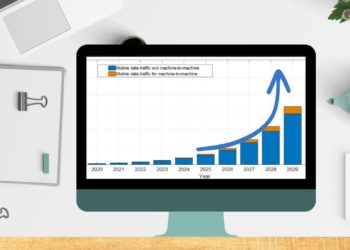In the ever-evolving landscape of business, maintaining a firm grip on your company’s budgeting is vital for sustained success. Effective budget control not only helps in minimising costs but also in steering the business towards profitability and growth. Here are four practical ways to enhance your control over business budgeting.
1. Embrace Technology in Financial Management
Leveraging Financial Software
In the digital age, it’s essential to utilise technology for efficient financial management. Investing in robust financial software can streamline your budgeting process, offering real-time insights and predictive analytics. These tools facilitate budget tracking, and expense categorisation, and provide a holistic view of your financial health. Additionally, they can automate repetitive tasks, reducing human error and freeing up time for strategic financial planning.
Implementing Smart Solutions
Integrating smart solutions such as smart meters for businesses can significantly impact your budgeting control. Smart meters can help business owners track how much energy they are using, enabling them to identify and reduce unnecessary expenses. By closely monitoring and managing energy usage, companies can lower their utility bills, thus freeing up more funds for other critical areas of the business.
2. Detailed Forecasting and Planning
The Importance of Accurate Forecasts
Accurate forecasting is a cornerstone of effective budget control. It involves predicting future sales, expenses, and cash flow to create a realistic budget. This process requires a thorough analysis of past financial data and market trends. By understanding the business’s financial trajectory, you can allocate resources more effectively and avoid unforeseen financial strains.
Regular Budget Reviews
Regularly reviewing and adjusting the budget is crucial. The business environment is dynamic, and sticking rigidly to an outdated budget can lead to missed opportunities or overspending. Regular reviews allow you to adapt to changes in the market, reassess your financial goals, and make informed decisions based on current data.
3. Employee Involvement and Training
Encouraging Fiscal Responsibility
Involving employees in the budgeting process fosters a culture of fiscal responsibility. When employees understand how their actions impact the company’s finances, they are more likely to make cost-effective decisions. Regular training sessions on budget management and financial awareness can empower employees to contribute to the company’s financial health actively.
Creating Accountability Structures
Implementing accountability structures within the organisation ensures that budgeting is not just a top-down process. Setting departmental budgets and giving managers autonomy to manage their funds encourages accountability. Regular check-ins and performance metrics can help track progress and identify areas for improvement.
4. Optimising Supply Chain and Inventory Management
Streamlining Supply Chain Processes
A well-managed supply chain can significantly affect your budget. Negotiating better terms with suppliers, consolidating purchases to get bulk discounts, and optimising logistics can reduce costs. Also, embracing sustainable practices can not only lower expenses but also enhance the company’s reputation.
Efficient Inventory Management
Effective inventory management is crucial for budget control. Overstocking ties up capital and leads to increased storage costs, while understocking can result in lost sales. Implementing inventory management systems that track stock levels in real-time and predict future inventory needs can help maintain the right balance, ensuring optimal financial efficiency.
The Budgeting Blueprint: Charting a Course to Financial Mastery
In conclusion, gaining more control over business budgeting is a multi-faceted approach that involves embracing technology, detailed forecasting, employee involvement, and optimising supply chain and inventory management. By implementing these strategies, businesses can not only maintain a tighter rein on their finances but also pave the way for sustainable growth and profitability. Remember, effective budgeting is not just about cutting costs; it’s about making smarter financial decisions that align with your business goals.
David Prior
David Prior is the editor of Today News, responsible for the overall editorial strategy. He is an NCTJ-qualified journalist with over 20 years’ experience, and is also editor of the award-winning hyperlocal news title Altrincham Today. His LinkedIn profile is here.











































































